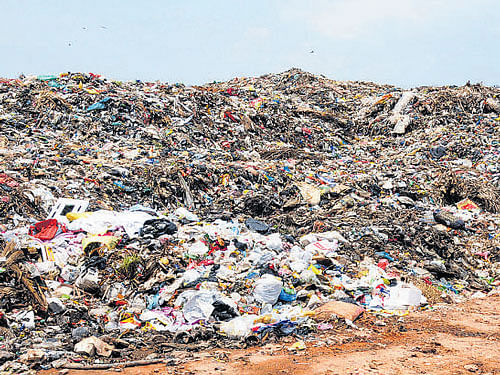
While the City may be expanding at a rapid rate, scientists at the Indian Institute of Science (IISc) have warned that any attempt to try and reclaim land for development from former landfills will have to be done carefully as they pose a threat to the environment as well as human health.
The researchers from the institute conducted a study on leachate, the contaminated liquid that drains through the bottom of the solid waste disposal facilities such as landfills. The study aimed at understanding the effect of ageing on the characteristics of leachate. The team selected a landfill located at Gundlahalli village in Doddaballapur. “We collected leachates from two different parts of the site. Sample one was from the location with old waste and sample two from the location with relatively recent waste,” said B P Naveen, lead author of the study and a PhD scholar at the Department of Civil Engineering.
The samples were analysed to test the physico-chemical characteristics. The LPI (Leachate Pollution Index) of both samples was then calculated. The LPI is an ascending order scale index used to represent the overall leachate contamination potential of a municipal solid waste landfill. “This analysis helped us in understanding the age of the waste. We found that the sample one was more than 10 years old and sample two was about four to five years old,” Naveen said. Analysis showed that the leachate from fresh waste was a bigger pollution threat compared to that from old waste. It also indicated that ageing has little effect on reducing the harmfulness of the leachate, said Naveen.
While landfills, once stabilised, it is usually reclaimed or reused as a disposal facility or for other purposes. “The rising cost of land, especially in urban areas, has made it necessary to reuse existing or abandoned landfills. Thus, any attempt to reclaim land for development should understand the characterisation of waste with their physical and geo-technical properties along with their chemical composition,” said Naveen, emphasising the importance of this study.
“Leachate may percolate through subsoil causing pollution to ground water and surface water resources. Our future study will focus on understanding these relationships,” Naveen said.